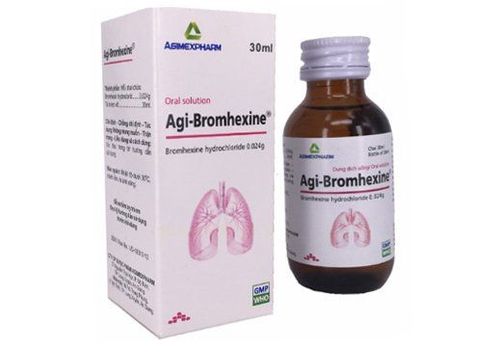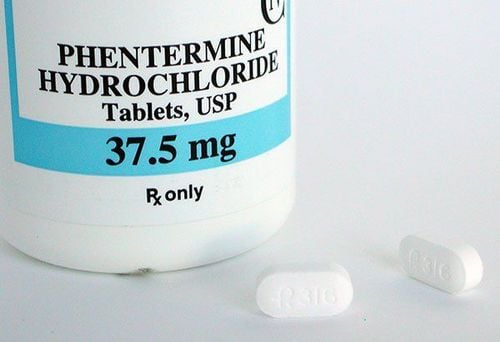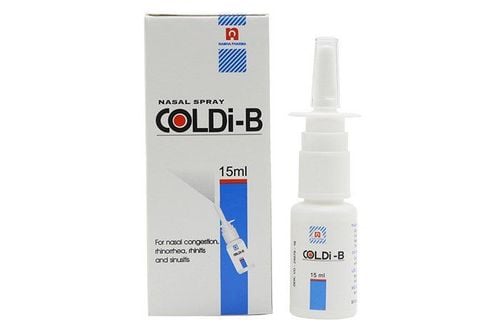This is an automatically translated article.
The article was professionally consulted by Dr. Nguyen Van Dinh - Head of Respiratory - Asthma - Allergy - Clinical Immunology Unit, Vinmec Times City International Hospital.High blood pressure is a fairly common condition in adults with bronchial asthma. Currently, there are many methods to help improve blood pressure in asthmatic patients. However, some drugs have the potential to cause asthma attacks or aggravate the disease, so which treatment should be prioritized to lower blood pressure in patients with co-existing bronchial asthma and hypertension?
Symptoms of hypertension are quite faint (headache, nosebleed ..) patients with bronchial asthma are often found to have high blood pressure when they go to the doctor periodically. Hypertension is considered a silent killer because it silently causes cardiovascular events, when not combined with bronchial asthma, if not controlled appropriately, it will leave serious complications such as stroke and cardiovascular disease. coronary heart disease, heart failure, increased mortality, and length of hospital stay in patients with bronchial asthma.
1. The relationship between bronchial asthma and hypertension
Mechanism of bronchial asthma involves inflammatory factors, leading to inflammation, edema causing airway narrowing, combined with an overreaction to bronchial smooth muscle stimuli, leading to asthma. dyspnea in asthmatic patients. There is no clear mechanism for the association between asthma and hypertension and cardiovascular disease, but some studies suggest the presence of inflammatory factors may play a role. . During an asthma attack, the patient has difficulty breathing, causing hypoxemia, tachycardia, and sympathetic hyperactivity, leading to a temporary increase in blood pressure. In addition, improper treatment, self-administered drugs such as long-term corticosteroids with high doses lead to increased blood pressure and other systemic side effects.
In contrast, some cardiovascular patients, if treated for hypertension with drugs such as nonselective beta-blockers, ACE inhibitors or other drugs such as aspirin, can make asthma uncontrolled, leading to difficult attacks. paroxysmal breathing.
Therefore, the appointment of treatment methods for bronchial asthma and hypertension is prescribed by a specialist, patients should not arbitrarily change or quit medication to treat the disease.
2. Non-drug methods in the treatment of hypertension
Lifestyle changes play a very important role in the treatment of both high blood pressure and asthma
Exercise regularly, gently and maintain an ideal weight, lose weight on the advice of a doctor . Exercise for at least 30 minutes at least 4 days a week. Adjust a healthy diet, limit eating a lot of fried or salty foods. Add vitamins and fiber in vegetables (when the risk of allergies has been eliminated). Quit smoking and stimulants, mobilize loved ones to make the surrounding environment smoke-free. Limit smoke, cold, do not arbitrarily use drugs unless indicated. Monitor your blood pressure at home as directed by your doctor. It is not necessary to monitor too often to avoid anxiety.

Điều chỉnh chế độ ăn lành mạnh, hạn chế ăn nhiều đồ chiên xào hoặc ăn mặn
3. Choosing antihypertensive drugs
Some drugs need to be cautious while using in patients with bronchial asthma Beta-blockers: Non-selective beta-blockers (Propranolo, Carvedilol, ..) are contraindicated in patients with bronchial asthma. bronchospasm by acting on beta receptors in the bronchi, leading to bronchospasm, reducing bronchial responsiveness to bronchodilators, and possibly causing or worsening asthma exacerbations in patients. Although selective beta-blockers have only selective effects on the cardiovascular system, some studies have shown a small reduction in respiratory function index in patients. Despite this, given the potential benefit in patients with a history of coronary artery disease or systolic heart failure, this drug may still be considered for use in patients with mild bronchial asthma and moderate cardiovascular disease. above. ACE inhibitors: ACE inhibitors cause a dry cough as a side effect, which can occur in up to 20% of patients using this drug. At present, it is controversial whether persistent cough caused by ACE inhibitors causes acute asthma or worsens asthma, so ACE inhibitors are not a contraindication for asthma, but they are not contraindicated. not the first choice.
Antihypertensive drugs that can be used in patients with bronchial asthma include: Diuretics: however, some drugs can reduce blood potassium while bronchodilators have similar side effects, so it is necessary to monitor Monitor patient's blood potassium. Calcium channel blockers such as nifedipine, nicardipine. In addition to its antihypertensive effect, the drug has the theoretical advantage of antagonizing tracheobronchial smooth muscle contraction, inhibiting mast cell rupture, and possibly enhancing the bronchodilator effects of beta-agonists. . Therefore, the use of low-dose thiazides alone or in combination with a calcium channel blocker is believed to be the preferred treatment modality in hypertensive asthmatic patients.
4. Prophylaxis of hypertension in patients with bronchiectasis
The best preventive measure is to improve modifiable risk factors such as: making healthy lifestyle changes, treating conditions such as dyslipidemia, diabetes.
To limit the impact of bronchial asthma on the cardiovascular system in general and hypertension in particular, it is necessary to control asthma well, limit exacerbations and side effects of drugs that increase the risk of heart disease. circuit.
Finally, it is necessary to raise awareness in the prevention and treatment of hypertension and asthma.
When you are diagnosed with asthma, you will need to follow it closely to keep the disease under control. Vinmec Asthma, Allergy and Clinical Immunology Clinic has developed a treatment protocol and care guide to help patients achieve optimal and long-term treatment effects. When you have any worries, concerns about bronchial asthma, please contact for support.














